Student Book Talks Help Motivate Readers
By Lynne R. Dorfman & Brenda Krupp
Book talks will help you create a community of readers eager to travel on their reading journey with you.
Think about your own readerly life. It’s probably driven by suggestions from personal friends and family members, people you follow on Twitter, Facebook, or blogs such as Nerdy Book Club, and colleagues you trust as readers.
That’s also the case in our classrooms. Students often want to read what their friends are reading. Regularly scheduled book talks (once or twice a month might be a doable goal) can motivate our most striving readers to try a book and spread the word – increasing the volume of books read by students across your classes.
It’s great to kick your book talks off at the start of school. With kids in grades 4-8, consider sending a letter to students over the summer to ask them to bring a favorite book with them on the first day. It could be one that they enjoyed during break or near the end of the last school year.
Model for students how they could give a two-minute book talk to their class during the first several weeks. If it is winter (not summer) break that’s approaching, encourage your eager readers to pick a new book to read at home and come prepared to talk about it when school resumes, to get the ball rolling.
Some book talk tips
These quick book talks can tempt classmates into reading their peer’s book choice for enjoyment. Here are some more moves teachers have found helpful:
- Don’t forget to include non-fiction texts. Recent studies show that today’s middle level readers often prefer books about science, sports, famous people, pop culture, weird happenings and more.
- Vary the genre of the book talks you feature in class so you reach all your student interests.
- Be proactive and tempt students who tend to stick with one genre to take a risk and read a book outside of their comfort zone.
- Highlighting Arthurian legends, graphic novels, science fiction, mystery, traditional literature, biography, and autobiography in your book talks will help kids discover new reading genres that interest them and make the search for new books much easier.
- Several book talks tied to an assignment can help children choose texts they’d most like to engage with while also meeting curriculum goals.
Remember, a book talk is:
…a way to share a book read independently.
…informal yet well planned.
…intriguing and enticing.
…focused not scattered.
…brief (30 seconds to 2 minutes).
…just enough about the book but never any spoilers!
(Thanks to our colleague and dear friend, teacher Catherine Gehman, for these sharable pointers.)
Model a book talk to get things started
Modeling a book talk for your students not only helps them understand what we’re talking about – it promotes the idea of a community where everyone is a reader and contributor.
Choose a book you think the kids in your class will find intriguing – maybe something you’ve just added to your class library or a newly discovered series you think they will enjoy. If you do readalouds, you could do brief talks on several possible books and let the kids choose which book you will read.
To help you get started, we have provided examples of two book talks we’ve modeled ourselves:
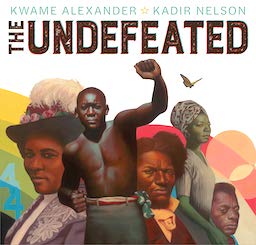
Then you reveal that this richly illustrated book will take you on an historical journey and introduce you to Black Americans who are unforgettable, undeniable, unflappable, unafraid, and more. Follow the poem (yes, it’s written in verse, like a poem or rap) as you view portraits of men and women who sacrificed much, encountered hardships, yet never gave up. Instead, they rose up to make a difference.The Undefeated by Kwame Alexander is ready to introduce you to men and women who endure, strive, and thrive.
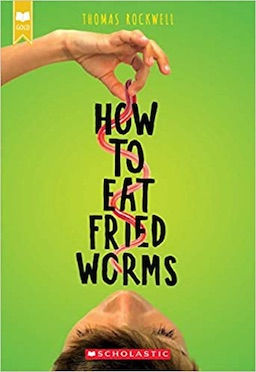
So, do you like them fried, boiled, breaded, or just plain raw? “What?” you ask. WORMS! If you are like Billy, you may just learn to eat them any old way. For a bet of $50 to buy a mini bike…. would you eat them? Find out if Billy wins the bet of eating 15 worms in 15 days despite all the sneaky tactics Joe and Allen use to make Billy wonder if he can do it.
“This is a great book to read anywhere you go – short chapters make it possible to read in the car, at the dentist’s office (think of the fun when other patients see the cover!), or before you get ready for bed. Don’t miss How to Eat Fried Worms by Thomas Rockwell…. unless, of course, you have a weak stomach!”
Book Talk tools and formats
You can model several formats and then allow your student to choose an appropriate scaffold for the book they want to share.
Book Talk: What’s the Genre?
- State the title and author.
- Identify the genre.
- Offer two examples from the book that helped you determine the genre.
- Share one big idea or theme the author was trying to convey.
- Explain what in the book helped you understand this idea or theme.
Book Talk: Think and Connect
- State the title and author.
- Explain two fascinating or new facts you’ve learned about the topic.
- Explain the importance of this topic by connecting to personal, community, or world issues.
- Give an example of how this book has changed your thinking about this topic or why the topic is so interesting to you.
Book Talk: Biography and Autobiography
- State the title and author and identify who the book is about.
- Explain what this person did that changed the world, his or her field, or the environment, or in some way helped people.
- Choose a person or event that shaped this person’s life and explain how.
Book Talk: To Read or Not to Read! (Choice List)
- State the title and author.
- Tell the class why you are recommending (or not recommending) this book.
- Choose two or three things from this list and offer specific details to illustrate the items you chose:
-
- Is this a genre you love? Explain what about this genre has such great appeal.
- Was the book a page turner? Explain why.
- Did you connect to a character? Explain why.
- Were there surprises that kept you interested? Explain one without giving away the ending.
- Did every chapter end with a cliffhanger? Give one example.
- Were the illustrations a major factor? Why?
- Retell a favorite part.
- Will this book make you laugh? Explain.
- Is the setting unusual in some way? Explain.
- Read a short excerpt to create interest.
Book Talk: Characters Change
- State the title and author.
- Reflect on the main character’s personality and think how he or she changed from the beginning to the end of the book.
- Describe what the character was like at the beginning. Talk about a personality trait and give an example.
- Describe how and why the main character changed. Read a short passage from the end that shows this change.
- End by recommending or not recommending this book. Give specific reasons.
Upper elementary and middle school students love to talk, so using time for book talks supports students’ strengths, interests, and passions (a well-placed Wow! is okay). Structuring the academic day to incorporate meaningful, purposeful opportunities for students to talk about books enhances their motivation and engagement .
Making ungraded book talks a regular part of your classroom experience gives students a dependable platform to share and recommend a book they love and want to share. They provide opportunities for students to learn effective presentation styles from each other. They can also nurture a reading identity of confidence, agency, and joy.
Lynne Dorfman and Brenda Krupp are co-authors of Welcome to Reading Workshop: Building a House of Readers, a new Stenhouse publication coming in 2022.
Brenda served as a classroom teacher, a lead teacher for Souderton Area School District, and a co-director for the summer invitational writing institute for the PA Writing & Literature Project (now The West Chester Writing Project) for over a decade.
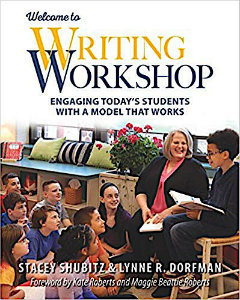

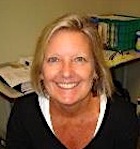
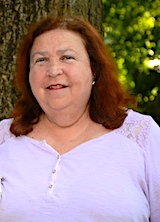































Love this blog